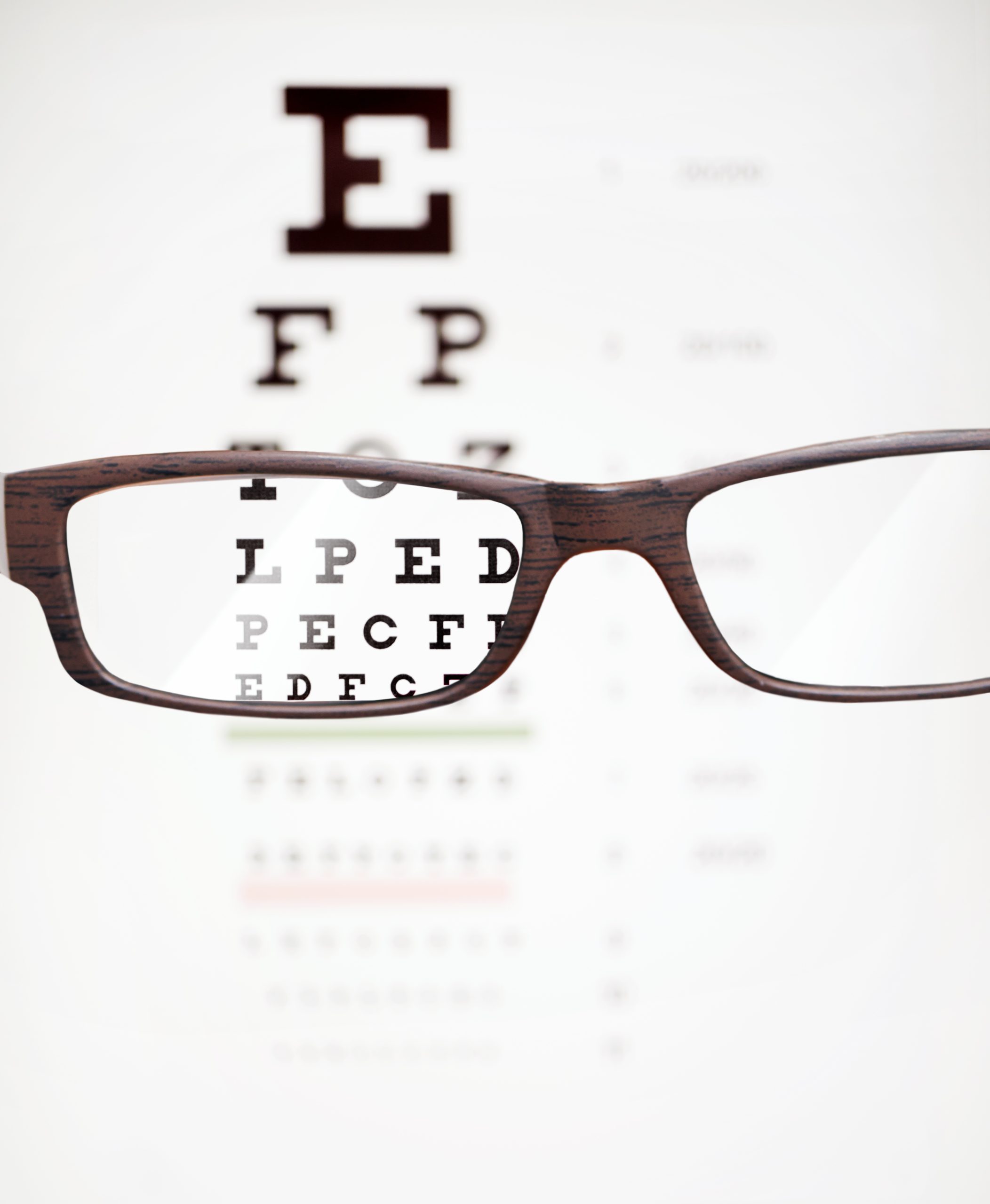Blurry Vision: Recognizing Signs and Seeking Clear Solutions
If your vision is consistently blurry, it may be a cause for concern. This article aims to guide you on when to see a doctor, the impact of blurry vision, risk factors, potential complications, preventive measures, diagnosis, age groups more susceptible, available treatment options, and a brief conclusion.
Overview of Blurry Vision
Blurry vision is a visual impairment characterized by a lack of sharpness or clarity in eyesight, making objects appear hazy or out of focus. This common symptom can vary in severity and may be a sign of various underlying eye conditions or systemic health issues. Understanding the symptoms, causes, potential consequences, and risk factors is essential for proper diagnosis and effective management.
Symptoms
- Difficulty Focusing: Objects may appear unclear or fuzzy, making it challenging to focus on details.
- Eye Strain: Prolonged periods of trying to see clearly can lead to eye strain, discomfort, or headaches.
- Squinting: Individuals may involuntarily squint in an attempt to improve focus and clarity.
- Variable Blurriness: Blurry vision may occur constantly or intermittently, depending on the underlying cause.
Causes
- Refractive Errors: Common conditions like nearsightedness (myopia), farsightedness (hyperopia), or astigmatism can lead to blurry vision if not corrected with appropriate eyeglasses or contact lenses.
- Presbyopia: Age-related difficulty in focusing on close objects, usually affecting individuals over 40.
- Eye Dryness: Insufficient tear production or poor tear quality can cause dry eyes, leading to temporary blurry vision.
- Eye Infections or Inflammation: Conditions such as conjunctivitis or uveitis can result in blurred vision.
- Cataracts: Clouding of the eye’s natural lens, typically occurring with aging, can cause progressive blurry vision.
- Glaucoma: Increased intraocular pressure can damage the optic nerve, leading to vision loss and blurriness.
- Macular Degeneration: Deterioration of the macula, the central part of the retina, can result in central vision blurriness.
- Diabetes: Uncontrolled diabetes can cause diabetic retinopathy, leading to vision problems, including blurriness.
What Happens Because of the Condition
- Impaired Visual Function: Blurry vision compromises the ability to see clearly, impacting daily activities such as reading, driving, or recognizing faces.
- Reduced Quality of Life: The persistent or recurrent nature of blurry vision can diminish an individual’s overall quality of life.
- Increased Risk of Accidents: Individuals with uncorrected or untreated blurry vision may face an elevated risk of accidents, especially while driving or engaging in activities that require clear vision.
Risk Factors
- Age: The risk of developing conditions causing blurry vision increases with age.
- Family History: A family history of certain eye conditions, such as glaucoma or macular degeneration, may elevate the risk.
- Systemic Health Conditions: Conditions like diabetes or hypertension can contribute to blurry vision.
- Occupational Factors: Prolonged use of digital devices or working in environments with poor lighting can strain the eyes, contributing to blurry vision.
- Medication Side Effects: Certain medications may have side effects affecting vision and causing blurriness.
Diagnosis
- Comprehensive Eye Examination: An eye care professional will conduct a thorough examination to assess visual acuity, refractive errors, and overall eye health.
- Refraction Test: Determining the need for corrective lenses to address common refractive errors like myopia, hyperopia, or astigmatism.
- Eye Health Assessment: Checking for underlying eye conditions such as cataracts, glaucoma, or macular degeneration through various diagnostic techniques.
- Dilation of Pupils: Using dilating eye drops to allow a more detailed examination of the retina and optic nerve.
- Review of Medical History: Evaluating the patient’s medical history, including any systemic conditions or medications that might contribute to blurry vision.
Treatment Options
- Prescription Eyewear: Correcting refractive errors with eyeglasses or contact lenses tailored to the individual’s prescription.
- Refractive Surgery: Procedures like LASIK or PRK may be considered for those seeking a more permanent solution to correct refractive errors.
- Management of Underlying Conditions: Treating the specific underlying cause of blurry vision, such as cataract surgery, glaucoma management, or addressing systemic conditions like diabetes.
- Eye Drops for Dry Eyes: If dry eyes contribute to blurriness, lubricating eye drops or artificial tears may be recommended.
- Medications: Depending on the underlying condition, medications such as anti-inflammatory drugs, antibiotics, or medications to control systemic conditions like diabetes may be prescribed.
Complications
- Progression of Underlying Conditions: If the cause of blurry vision is related to an untreated or unmanaged eye condition, there is a risk of the condition progressing, potentially leading to permanent vision loss.
- Accidents and Injury Risk: Individuals with uncorrected or untreated blurry vision may be at an increased risk of accidents, falls, or injuries, especially when performing tasks that require clear vision.
- Reduced Quality of Life: Persistent blurry vision can impact daily activities, diminish quality of life, and contribute to emotional distress.
Prevention
- Regular Eye Examinations: Schedule routine eye exams to detect and address refractive errors and underlying eye conditions early.
- Eye Safety Practices: Protecting the eyes from injuries, wearing appropriate eyewear during activities with potential eye hazards.
- Healthy Lifestyle: Maintaining a healthy lifestyle, including a balanced diet, regular exercise, and managing systemic health conditions like diabetes or hypertension.
- Eye Hygiene: Practicing good eye hygiene, such as taking breaks during prolonged screen time, can help prevent eye strain and dry eyes.
- Occupational Adjustments: Making ergonomic adjustments in work environments, especially for those who spend extended periods working on digital devices.
Medications
- Eyedrops for Dry Eyes: Lubricating eyedrops or artificial tears can help relieve dry eyes, a common cause of blurry vision.
- Anti-inflammatory Medications: In cases where inflammation contributes to blurry vision, such as uveitis or conjunctivitis, anti-inflammatory medications may be prescribed.
- Antibiotics: If blurry vision results from an eye infection, antibiotics may be necessary to address the underlying cause.
- Medications for Systemic Conditions: Treating systemic conditions like diabetes or hypertension with appropriate medications can help manage associated vision issues.
When to See a Doctor
- Sudden Onset of Blurry Vision: If blurry vision occurs suddenly and persists, especially if it’s accompanied by other symptoms like eye pain or headache, seek prompt medical attention.
- Gradual and Persistent Blurriness: If vision becomes gradually blurry or remains persistently unclear, it warrants a visit to an eye care professional.
- Changes in Vision: Any noticeable changes in vision, including blurriness, double vision, or difficulty focusing, should be evaluated by a doctor.
- Eye Injuries or Trauma: If blurry vision follows an eye injury or trauma, immediate medical attention is crucial.
Demographics More Susceptible
- Age: Older adults are more susceptible to conditions like cataracts, macular degeneration, and presbyopia, which can cause blurry vision.
- Diabetic Individuals: People with diabetes have an increased risk of diabetic retinopathy, a condition that can lead to blurry vision.
- Individuals with Hypertension: High blood pressure can contribute to conditions affecting the blood vessels in the eyes, potentially causing blurry vision.
- Those with Family History: Individuals with a family history of certain eye conditions, such as glaucoma or macular degeneration, may be at a higher risk.
Follow-up Care for Adults and Children
For Adults:
- Regular Eye Examinations: Schedule routine eye exams to monitor changes in vision, detect early signs of eye conditions, and receive appropriate interventions.
- Adherence to Treatment Plans: If medications are prescribed or interventions recommended, adhere to the treatment plan and attend follow-up appointments.
- Eye Health Education: Stay informed about eye health and seek professional advice promptly if any changes or concerns arise.
For Children:
- Pediatric Eye Exams: Ensure children undergo regular eye examinations, especially if they experience blurry vision or related symptoms.
- Educational Support: Collaborate with healthcare professionals and educators if blurry vision affects a child’s academic performance or daily activities.
Conclusion
Blurry vision can be a symptom of various underlying conditions, and timely medical attention is crucial for accurate diagnosis and effective management. Whether in adults or children, regular eye examinations, prompt response to changes in vision, and adherence to treatment plans contribute to optimal eye health. Understanding individual risk factors and seeking professional care when needed are essential steps in preserving clear and healthy vision. If you or your child experience persistent or concerning blurry vision, consult with an eye care professional for a thorough evaluation and appropriate guidance.
World Eye Care Foundation’s eyecare.live brings you the latest information from various industry sources and experts in eye health and vision care. Please consult with your eye care provider for more general information and specific eye conditions. We do not provide any medical advice, suggestions or recommendations in any health conditions.
Commonly Asked Questions
Yes, Blurry Vision can be a symptom of various serious eye conditions, including glaucoma or macular degeneration. Seeking professional advice is crucial for proper diagnosis and management.
Yes, certain nutritional deficiencies, such as vitamin A deficiency, can contribute to Blurry Vision. Maintaining a balanced diet supports overall eye health and visual acuity.
Yes, a sudden change in prescription can cause temporary Blurry Vision as the eyes adjust to the new prescription. Adapting to the new lenses typically improves visual clarity.
Yes, certain medications may have Blurry Vision as a side effect. If experiencing visual disturbances, consult with a healthcare provider to discuss potential medication adjustments.
Yes, prolonged use of digital devices can contribute to digital eye strain, leading to Blurry Vision. Implementing the 20-20-20 rule and taking breaks help reduce eye strain.
Some degree of Blurry Vision can be a normal part of aging, often due to presbyopia or other age-related changes. Regular eye check-ups help manage age-related visual changes.
Yes, dry eyes can cause Blurry Vision. Maintaining adequate eye lubrication through artificial tears or addressing the underlying cause of dry eyes helps improve visual clarity.
Yes, stress can cause temporary Blurry Vision due to changes in blood flow to the eyes. Managing stress and practicing relaxation techniques may alleviate this symptom.
No, Blurry Vision can result from both eye-related issues (like refractive errors) and systemic health problems (such as diabetes or hypertension). Professional assessment helps determine the cause.
Yes, Blurry Vision can be a symptom of diabetes, especially when blood sugar levels fluctuate. It is essential to monitor overall health and seek professional advice if experiencing visual changes.
news via inbox
Subscribe here to get latest updates !








